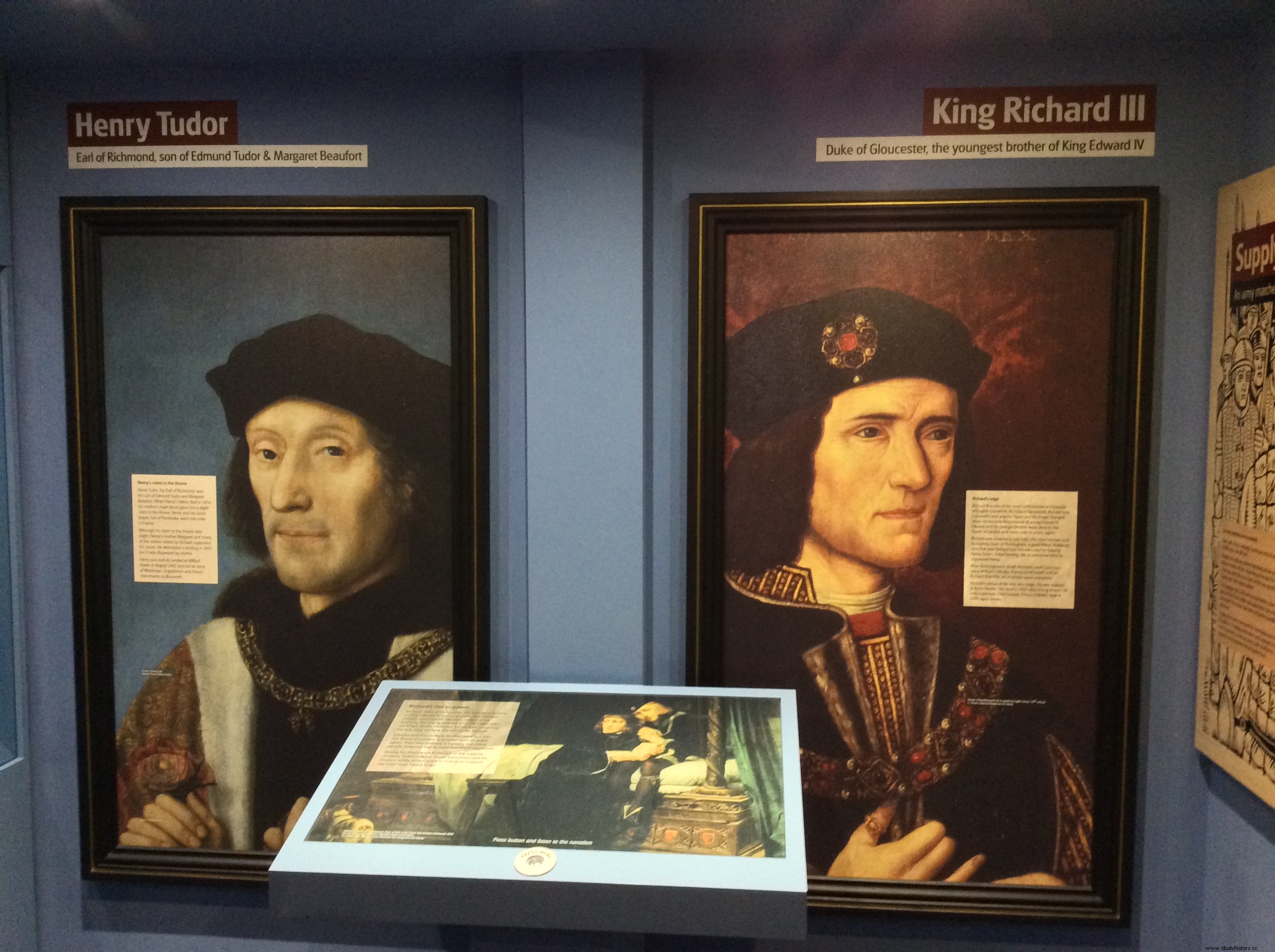 Entry taken from the book The Plantagenets
Entry taken from the book The Plantagenets
On August 22, 1485, one of the most decisive battles in the history of England took place. He faced the troops of King Richard III and those of Henry Tudor. The defeat and death of the first and the victory of the second marked the end of the reign of the Plantagenet dynasty, which had been occupying the English throne for more than three hundred years, and the accession to it of the Tudor dynasty that would give monarchs as famous as Henry VIII. and Elizabeth I.
The best known version of this battle is the one contained in Shakespeare's play Richard III (in which the Plantagenet monarch pronounces the famous phrase:«a horse, my kingdom for a horse"). However, Shakespeare's view of the Battle of Bosworth in particular and of Richard III's reign in general cannot be called objective or unbiased. The famous playwright wrote at the height of the Tudor dynasty whose accession to the throne occurred after the battle that is the subject of this entry in which Henry Tudor, whose right to the throne was to put it mildly tangential, managed to access it by killing the crowned king at Westminster and sanctioned by Parliament. On the origin of the Tudor family, see the article dedicated to Catherine of Valois on the blog.
For the Tudors it was essential to give a patina of legitimacy to the episode that was at the origin of their dynasty and that is why writers of the Tudor era such as Shakespeare and Thomas More described Richard III as an evil tyrant capable of murdering his own brother George and his little nephews on his way to the throne (see the blog article dedicated to Richard III and the princes of the Tower of London).
Henry Tudor was exiled in Brittany while his mother Margaret Beaufort, the last representative of the Lancastrian branch, defeated by the Yorks in the Wars of the Roses (which also has his blog post). Henry makes a first attempt to land in England in 1483, which is a failure as a result of which conspirators in his favor such as the Duke of Buckingham were executed.
In 1485 Henry Tudor tried again and landed at Milford Haven (Wales) at the head of a small troop of French mercenaries. His intention is to go to London and proclaim himself king and he is gathering support from discontent with Richard III along the way. Ricardo travels from Nottingham to Leicester to cut off Henry's path and summons all the lords of the kingdom, although not all of them heed his call.

Portraits of the contenders at Bosworth, Richard III and Henry VII
Both armies are at Bosworth, fifteen miles south-west of Leicester, preparing for battle on August 22. The royal troops are somewhat outnumbered, but an unpleasant surprise awaits Richard III when the important Stanley family retinue does not stand alongside the royal formation, but is placed on a hill between the two armies.
The Stanleys had fought alongside the Yorks in the Wars of the Roses; but Lord Stanley's marriage to Margaret Beaufort, mother of Henry Tudor, makes the Stanleys decide, once the battle has begun, to side with Tudor.
Henry, who throughout the Wars of the Roses and until that point in the battle, had always remained in the second row, finally decides to take a step forward and advance towards the enemy . Ricardo sees the movement and charges determined to end the life of his rival. But in the charge he falls from his horse. According to legend, his escort tries to convince him to retire but Richard tells them that on that day he will live or die as King of England.
Seeing the king dismounted, Henry's troops rush against him and Richard receives multiple wounds that cost him his life. The battle had lasted just over an hour and changed the history of England. As the title of the entry says, it was the last charge of the Plantagenets, a dynasty that gave England kings such as Henry II, Richard the Lionheart, Juan Sin Tierra, Eduardo I Longshanks, and the heroes of the Hundred Years War Eduardo III , his son The Black Prince and Henry V.
At the end of the battle, Henry Tudor went to London, where he was crowned Henry VII; he caused parliament to fix the date of his proclamation as king the day before the battle of Bosworth, thus making Richard III and all his followers in the battle rebels and traitors to the crown.
For his part, Richard III's body was moved to Leicester where he was buried; traces of his remains were lost for more than five hundred years, until they were found in 2012 in a fascinating investigation by the University of Leicester… but that's another story.
